Background:
I came to Canada in 2010 to study Business and Marketing while holding B.A. Civil and Industrial Construction Engineering and having experience working as a construction engineer for over 2 years. I picked this field of study to kinda get out of my comfort zone and learn something new that was not engineering-related. During my education I was introduced to digital marketing (search engine marketing and search optimization marketing), I got fascinated by SEO and its concepts, and decided to choose SEO and SEM and my next career move. While working as SEO/SEM manager I came across famous Google papers “Map Reduce” and “Page Rank“, these concepts and ideas galvanized my passion for learning how search engines work and appreciate their complexity and intricacy and ignited curiosity and appreciation of how Google scans and indexes the entire web. The knowledge I obtained helped me to rank for very competitive search terms during my work as an SEO/SEM manager.
What Made You Interested in Data Science and Data Engineering?
Growing up, I took liking all things tech and digital, and while working in the marketing field I realized the importance of data analysis since all your decisions need to be verified by data and since Google uses over 300 signals to rank sites that are still unknown I need to design and manage a lot of use cases and measure results.
Around 2014 I decided to take a post-graduate certification in digital analytics. My personal mantra is to invest in my education every few years. I foresee education as an opportunity to acquire knowledge piece by piece that, like pieces of a jigsaw puzzle, allows you to see the bigger picture.
Over time my passion for data analysis has led me to switch from the marketing field and to focus purely on data. And at the end of 2018, I’ve deceived to transition into the data field to pursue my passion for big data, data engineering, predictive analytics and machine learning. I did some research and decided to take the Big Data Analytics, Advanced-Data Science and Predictive Analytics program from York University. This program provided me with a lot of basic concepts of machine learning and data engineering.
When I started this program I had zero experience in programming but I had quite extensive knowledge of computers and different operating systems. The program utilizes R and Python so, I decided to get a DataCamp account to get some basic knowledge of both languages, at that time I spend around 30-40 hours every week learning the program materials and doing DataCamp exercises and projects while working full-time. This experience helped me tremendously to ace the program.
After successfully graduating from the program I made the decision to acquire a deeper knowledge of machine learning and enrolled in the Machine Learning Certification program from York University. This program provides a great understanding of machine learning and deep learning as well. I quite enjoyed this program even though it was quite challenging but rewarding. However, after graduation, I realized that I was missing knowledge of how data gets acquired, transformed and pipelined for future machine learning models.
Why a Bootcamp and Why WeCloudData?
So, I went back to research different programs that can fulfill my desire for big data tools. I completed a few Udacity courses that I would say provided a solid understanding of Data Engineering ideas and technologies and I would definitely recommend taking Udacity – Data Engineering Nanodegree. However these programs felt quite shallow and I wanted a more extended knowledge of Spark and Hadoop technologies, and soon enough I came across WeCloudData and its Big Data for Data Scientists certification. I am grateful that I found this program, it has provided me with a concrete understanding of all major big data tools and technologies. By the end of this course, I was able to build a real-time machine learning pipeline that was ingesting clink stream data from Kinesis, transforming the data and feeding it into a machine learning model on Spark cluster to predict the likelihood of clicking on ads. I quite enjoyed this course and instructor.
Following my graduation from the Big Data for Data Scientists program I received an invite to join the Full-time Applied Data Engineering program that WCD has just launched. By that time I had made up my mind of what I want to do in the near future and I decided to commit my effort and take this full-time program. I would say that the key feature of the full-time program that influenced my decision to take it was the ability to work with real companies on their business problems and gain valuable experience. Looking back, I have no regrets about taking this program, truly. The program has equipped me with highly demanding data engineering skills and hands-on experience with the best industry tools. The program provided concrete knowledge about cloud technologies (AWS/CGP) and many other DE tools for processing massive amounts of data. Now, I am quite confident that I will be able to build complex end-to-end data pipelines and designing data-driven architecture.
Learning Experience:
The overall learning experience was great probably the best so far I had. However, there were a few hiccups and it was expected since I joined the very first batch of the program. I believe this program is going to get only better. Also, I would like to note that the full-time program requires your dedication, hard work and quite some hours every week to contribute. The instructors that lead the program and TAs are very knowledgeable and have extensive industry experience and are always ready to help you to understand complex technological concepts. I would say everyone at WeCloudData cares about your success and works hard to make sure you can confidently apply your knowledge at the workplace.
Quiz/Projects and Challenges:
The projects were very interesting and challenging at the same time and I learned a lot. I got introduced to different methods and tools to process batch and real-time data. The full-time program provided access to work with real clients and there I applied what I learned while working on clients’ projects and solving real business problems.
Job Search Experience and Challenges:
I would say live coding was the biggest challenge for me when I was searching for a job. Coming from not a computer science background, certain concepts were quite difficult to comprehend, however, online services like LetCode and HackerRank helped me a lot to gain missing knowledge about computer algorithms. I also took Udacity – Data Structures & Algorithms Nanodegree program that helped me extensively.
How Has BeamData Experience Helped You?
BeamData experience assisted me greatly to land my current job. As a career switcher, I found this experience extremely valuable to be confident in the knowledge that you gain during the education time. I worked on two client projects, for the first project I worked as a project lead and was working on updating the database of the main BI tool and improving caching capabilities of the tool, in addition, I worked on optimizing the client warehouse solution that was deployed in the snowflake cluster. Solutions that I provided significantly benefited the business by saving cost and improving analyst experience using the BI tools. For the second project, I work for a Toronto startup that supplies IoT devices to its clients, receives, stores and provides in-depth analytics of the client data. I was responsible for the overall infrastructure optimization and provided a few key improvements that reduced the complexity of pipelines, offered real-time anomaly detection with real-time alerts and reduced cost on monthly AWS expenses.
Job Search Timeline:
It took me about a month and around 20 interviews to receive three different job offers. All offers had their sweet spots and it was quite hard to pick between them. I guess it was not the worst problem to have, but it was a little bit stressful. After an excruciating period of time when I was deciding which offer to accept I’ve decided to select the offer that was related to Data Engineering and Cyber Security. I think this will give me the advantage to gain experience in highly demanding and cutting-edge industries.
Suggestions for New Students:
I like this quote by Nelson Mandela- “It always seems impossible until it’s done.” Now when I look back at the path I took to realize what I like doing it might look somehow impossible, but focus, dedication and passion can lead you to achieve some of those impossible things. I recommend that you find your passion and keep pursuing it. In terms of technical requirements focus on SQL and Python, these two “must-to-know” if you want to become a successful Data Engineer.
Plan for the Next Few Years:
Keep growing professionally in the Data Engineering field and continuously learn new technologies. My next goal is to obtain certificates in Cyber Security and DevOps and later pursue a Master’s degree.










